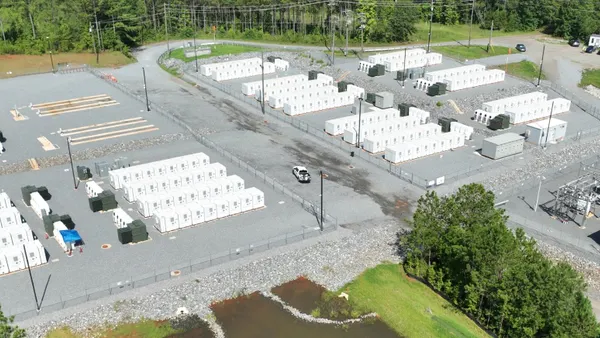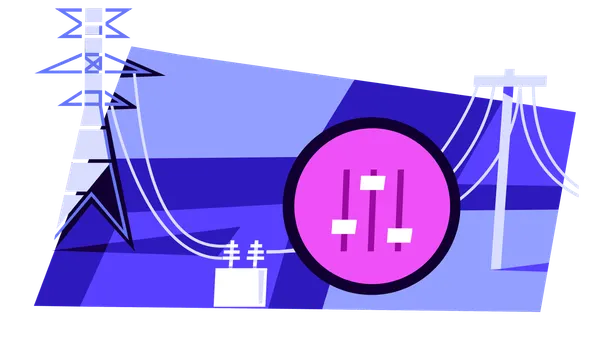Dive Brief:
- The National Association of Regulatory Utility Commissioners (NARUC) on Tuesday filed a petition for review in the U.S. Court of Appeals for the District of Columbia regarding the Federal Energy Regulatory Commission's (FERC) Order 841, which would provide fair market access for energy storage.
- Portions of FERC's order are "arbitrary and capricious" and "not in accordance with the law," according to NARUC. The petition claims that FERC went beyond its "jurisdiction, authority of power" in issuing the order.
- Energy storage insiders told Utility Dive that they are not surprised by the pushback, but they strongly support Order 841. "[Order] 841 just represented sort of a formal codifying of a lot of what was already happening in the industry throughout the country," Chris Streeter, chief information officer at Convergent, said.
Dive Insight:
Order 841, approved in February 2018, has been hailed as a landmark decision by the energy storage industry. But pushback from a number of sides, including state regulatory commissioners, has delayed its implementation. The petition filed by NARUC is the latest instance of this effort, Kelly Speakes-Backman, CEO of the Energy Storage Association (ESA), told Utility Dive.
"It's disappointing that organizations that are otherwise excited to work with innovative new products are looking to hold on to the status quo of complete separation," she said. "The way that this order was written left plenty of room for states to still be able to control who and how you interconnect DERs, what's eligible and what's ineligible. It doesn't take the rights away from states, it simply allows FERC to work within its own jurisdiction over wholesale rates."
ESA described Order 841 as a watershed decision for the industry. According to the trade association, the order is going to open up more markets for the storage industry, which will allow the deployment of energy storage in larger numbers to support grid reliability and higher penetrations of renewables.
Energy storage developer Convergent, recently acquired by private equity firm Energy Capital Partners, said the FERC order helped streamline the regulatory jungle for energy storage.
"One of the issues we found before 841 was that many of the ISOs [Independent System Operators], though they were beginning to recognize the value of energy storage on their grids, were implementing these kinds of changes at different rates and in different ways, and so it made it more difficult for a company like ours to really launch a unified strategy across the U.S.," Streeter said.
Convergent said it understands and recognizes the concerns of state utility regulators, but it strongly supports the Order 841.
"I would say that we're certainly not surprised to see pushback, like the current filing from an organization that wants to allow utilities and states to have more control," Derek Oosterman, senior vice president of Convergent's strategic projects, told Utility Dive.
"We very much support the FERC 841 view of the world ... because ultimately, we think it's going to create a much more reliable and stable grid, particularly given the penetration of additional renewable generation, and other intermittent generation into the market."
There have been concerns about a number of particular proposals from regional transmission organizations and ISOs, including a 10-hour discharge requirement for storage to participate in PJM's capacity market.
However, a new study from Astrapé Consulting, which was funded by ESA and the Natural Resources Defense Council, shows PJM's proposal is "unnecessary and unduly restrictive." The study concluded that a shorter storage duration requirement correctly reflects its capacity value for the foreseeable future, ESA said in a press release.
"It's one more massively substantial and important study that helps us understand the contribution that storage can make to system reliability within PJM, and the ability to sort of displace your traditional assets, such as gas peakers," Ray Hohenstein, market application director at Fluence, told Utility Dive.
A recent study by the National Renewable Energy Laboratory (NREL) concluded that every region across the country offers the potential for peaking capacity needs to be met by short-duration, four-hour battery storage systems.













